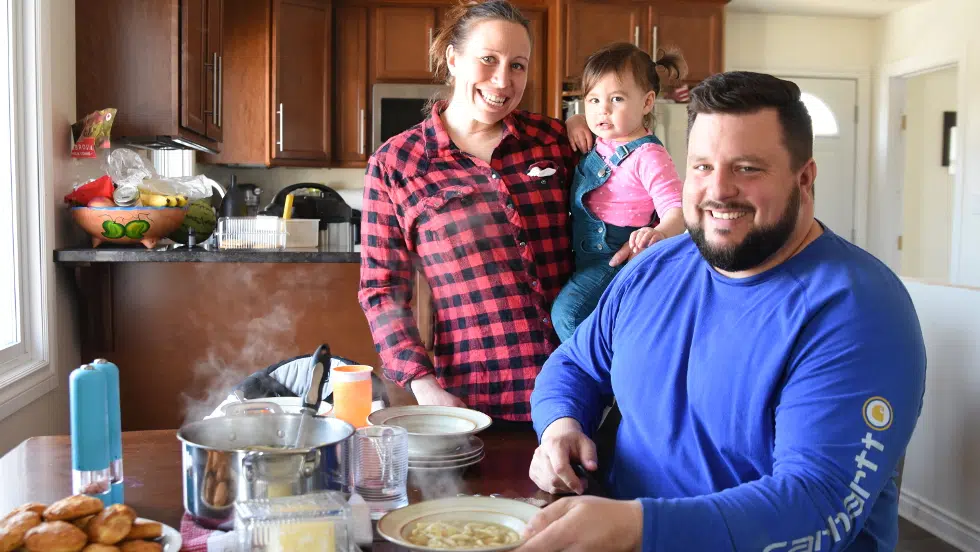
Prince Albert-area family raising Heritage Breeds
A Prince Albert-area family is raising some unique animal breeds and hoping their business model will help them break into the artisanal food production and boutique processing business.
Lesley and Eric Schmalz are raising heritage breeds of pigs, sheep and chickens at their farm East of Prince Albert. Heritage animals are traditional breeds that were more common in years past, before the rise of larger commercial farming operations.
The family is raising Tamworth hogs, Barred Rock Chickens, and Mangalitsa pigs, also known as woolly pigs at their operation, Jäegerheim Heritage Farm. The name is a nod to the family’s German roots and Eric’s hobby as a hunter. Jäeger means ‘hunter,’ and heim means ‘home’, Schmalz said.
The farm also welcomed its first Icelandic lamb last week, and are expecting several more this spring.


